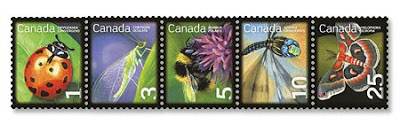After giving you my thoughts last week on what benefits the organic approach has for the gardener, I am widening the lens this week to look at how the environment can reap the rewards of gardeners eschewing synthetic chemicals in favour of natural principles. First, an organic garden is a biodiverse, or wildlife-friendly, garden. To harbour any hope of achieving one you must place your foot on the first rung of the ladder, which means creating healthy soil – the building block. The goal is crumbly and airy soil which contains countless billions of microscopic organisms that break down organic matter, thus adding nutrients. The worms you can see play a vital part in developing the soil, but they depend on the microscopic bacteria you can't see.
Thirty years ago, the soil in what is now my kitchen garden was thin and dried out quickly. By adding compost and digging in green manures, I gradually transformed its structure into the free-draining, moisture-retaining soil plants require, with an equal balance of soil particles and air pores. The smaller pores allow water to drain away and the larger ones provide the oxygen plants need. Worms are the soil's civil engineers – without them, the ground would become sour and soggy. Though their biggest enemy is the predatory New Zealand flat worm, fungicides are almost as damaging.
Humus-rich soil stores carbon and prevents vital nutrients from being washed away with every shower. Paradoxically, artificial fertilisers impoverish the ground. Clay particles in the soil attract and retain calcium and ammonium, but ammonium sulphate fertilisers displace the calcium, which is then leached away. The result is sour, acid soil, as a survey conducted by the Rothamsted Research Institute in Hertfordshire has shown. In this long-term grassland study, started in 1856, the area treated with ammonium sulphate fertiliser now has a pH level of 3.7, which is extremely acidic.
The best way of improving any soil is to mix in homemade compost. The compost heap is the garden's factory, the workplace for the greatest concentration of life in the garden, creatures that busily break down dead vegetation and transform it into soil-like material. With very few exceptions, such as diseased plants and grass clippings treated with herbicide, all decaying vegetation and raw kitchen scraps should be composted. No garden, whatever its size, should lack a compost heap.
Recycle woody and prickly prunings too. Pile them up in a discreet part of the garden and let them slowly rot. This "dead hedge" provides shelter for countless small creatures and makes an excellent restaurant for birds and hedgehogs. I try to establish an ecosystem in the garden by reusing all its once-living material, thereby providing a resource for as much life as possible. I reduce my carbon footprint by using, not discarding, virtually all my garden "rubbish".
The size of my patch – three acres – means I can make more of an individual difference than most gardeners by gardening organically, but collectively every gardener can play their part. A study in 2009 found that 22.7 million households in the five major UK cities had access to a garden and that their average size was 190sq m. Added together, gardens accounted for one-quarter of the land in those cities. The report noted that "the total contiguous area, and heterogeneous nature, of all the gardens in a residential street or neighbourhood is of considerably more relevance to species requiring large areas over which to fulfil their niche requirements, than any one individual plot".
There is tremendous goodwill among gardeners towards wildlife. Recent reports show householders provide food for nearly 10% of birds that would use feeders and that there are 2.5m-3.5m garden ponds, some as small as 1sqm. This is great news, but every study into organic gardens and agriculture, including one by Elm Farm two years ago, has shown organic systems have 12% more biodiversity than conventional counterparts. There is much greater diversity of plants, insects, butterflies and earthworms, as well as a wider range of bird species.
To protect my garden's biodiversity I shall continue to manage it organically, snubbing synthetic chemicals – fertilisers, herbicides, pesticides and fungicides. They destroy so much of the delicate web of life that underpins everything. It may seem obvious, but you will have far more biodiversity in your garden if you don't try to kill it.
Visit askorganic.co.uk. Email your gardening queries to da@askorganic.co.uk
Source: Herald Scotland, 19 January 2013
http://www.heraldscotland.com/life-style/homes-interiorsgardens/organic…

- Log in to post comments
